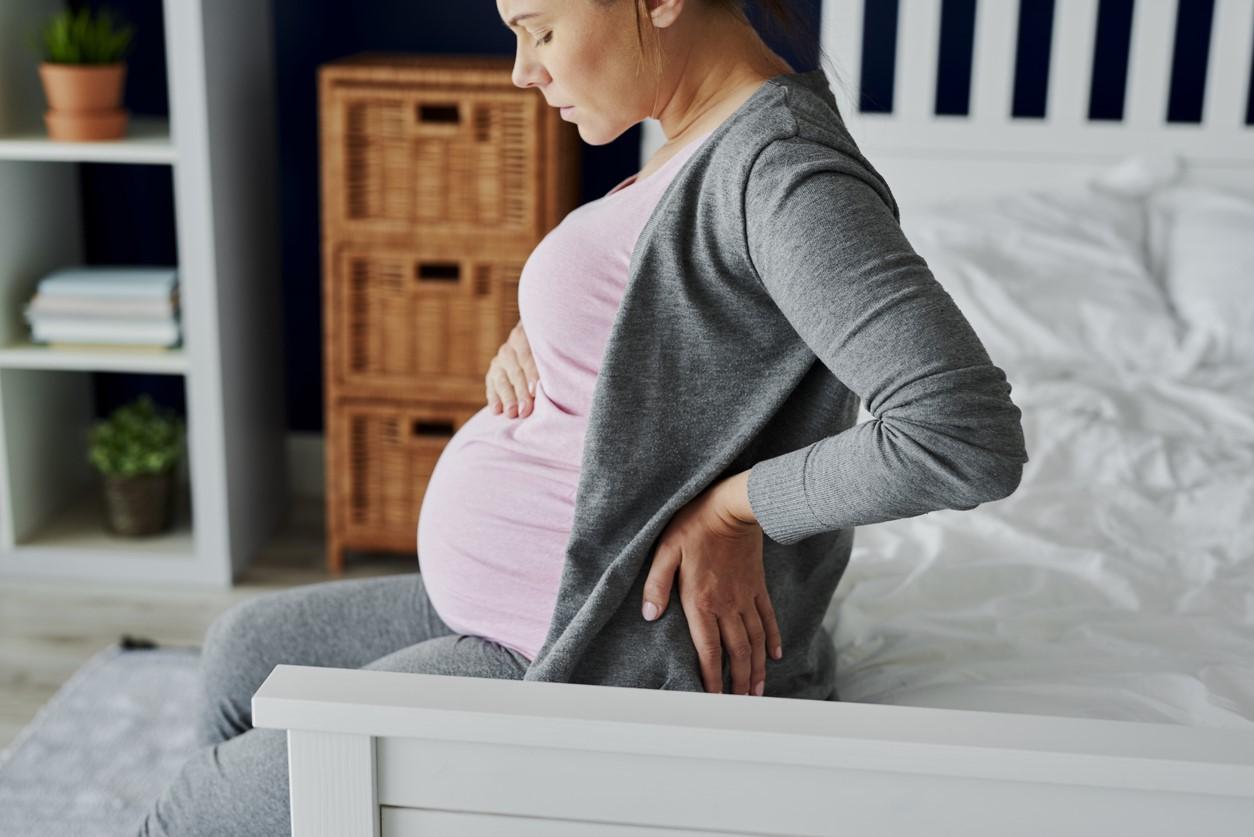Two studies published yesterday describe the medical consequences of COVID-19 in pregnancy, one finding that the virus may double the risk of severe maternal outcomes and preterm birth, and the other showing that infection can lead to problems with the placenta that may cause fetal loss.
Findings underscore importance of vaccination
In the first study, published in JAMA Internal Medicine, Kaiser Permanente Northern California researchers analyzed the electronic medical records of 43,886 pregnant women who delivered from Mar 1, 2020, to Mar 16, 2021. Average patient age was 30.7 years, 33.8% were White, 28.4% were Hispanic, 25.9% were Asian or Pacific Islander, 6.5% Black, 0.3% American Indian or Alaska Native, and 5% were multiracial or of another race.
Among these women, 1,332 (3.0%) tested positive for COVID-19 from 30 days before conception to 7 days after delivery. Infected women were more likely than their uninfected peers to be younger and Hispanic and to have had multiple babies, a higher neighborhood deprivation index, and obesity or chronic high blood pressure.
Before universal COVID-19 testing of pregnant women admitted for delivery was implemented in the healthcare system in December 2020, the positivity rate was 1.3%, compared with 7.8% after.
After adjustment for demographic characteristics, underlying medical conditions, and smoking status, infected women were at double to triple the risk for severe illness such as acute respiratory distress syndrome and sepsis (hazard ratio [HR], 2.45), birth at less than 37 weeks gestation (HR, 2.08), and venous thromboembolism (blood clots) (HR, 3.08).
COVID-19 infection was also tied to an elevated risk of medically indicated preterm birth (eg, for a life-threatening maternal condition such as preeclampsia) (HR, 2.56), spontaneous preterm birth (HR, 1.61), and early (HR, 2.52), moderate (HR, 2.18), and late (HR, 1.95) preterm birth.
Among infected women, 5.7% were hospitalized for COVID-19. A diagnosis of pregestational diabetes (HR, 7.03), as well as Asian/ Pacific Islander (HR, 2.33) and Black (HR, 3.14) race, were linked to an increased risk of hospitalization.
Of the 307 women diagnosed as having COVID-19 during or 3 weeks before hospitalization, 24.8% (5.7% of the 1,332 total infected women) required respiratory support, 1.3% of them received mechanical ventilation, and 1 died.
"These findings are important in the context of recent SARS-CoV-2 variants, which may be associated with a higher risk of infections and perinatal complications than the previous variants, and the number of young adults and pregnant individuals who remain unvaccinated," the study authors wrote.
In a Kaiser Permanente news release, lead author Assiamira Ferrara, MD, PhD, said that the results add to growing evidence that COVID-19 infection during pregnancy raises the risks of serious complications.
"Coupled with the evidence that the COVID-19 vaccines are safe during pregnancy, these findings should aid patients in understanding the risks of perinatal complications and the need for vaccination," she said.
Delta may cause worse placenta damage
The second study, led by Massachusetts General Hospital (MGH) investigators, involved a series of placentas examined from Jan 1, 2020, before the SARS-CoV-2 Delta variant wave, to Nov 4, 2021, amid the surge. The findings were published in JAMA Network Open.
The team identified 47 cases of placentitis, or inflammation of the placenta, caused by SARS-CoV-2 infection, 8 of them from 2020 and 39 from 2021. Fifteen of the placentas were from MGH patients, while 32 were referred from other facilities for consultation.
The researchers noted that placentitis in COVID-19 patients causes severe placental damage often leading to vaginal hemorrhage and newborn illness and death. Some variants of concern, such as Delta, they said, seem to cause more damage than others.
Among all specimens, more than 50% of the placenta was inflamed. Twenty-nine cases (62%), all from 2021, also had multiple intraparenchymal thrombohematomas, or blood clots. Among these cases, 72% resulted in stillbirth. Of the 18 placentas without thrombohematomas, 17 (94%) were from live births. Among the 40 placentas with data on newborn sex, 24 were girls.
"The thrombohematomas are likely a result of severe viral placental damage," the researchers wrote. "Our findings suggest a pathogenetic mechanism for the reported increased risk of stillbirth associated with SARS-CoV-2 infection in 2021."
SARS-CoV-2 strain was identified in 8 cases, of which 3 were Delta (2 cases of thrombohematomas resulting in stillbirths, 1 live birth without thrombohematomas), 2 were Alpha, and 3 were other strains. Of the cases caused by Alpha or other strains, all were live births without thrombohematomas.
Ultrasound documented fetal death in two cases, both of which showed large spaces within the placenta filled with maternal blood. When confirmed, COVID-19 infection was most often diagnosed within 14 days before delivery (29 of 33 cases [88%]).
All patients were unvaccinated except one, who was diagnosed as having COVID-19 in 2021, 7 weeks before delivery, and received one vaccine dose; it isn't known if she completed the vaccination series. She delivered a live baby at full-term and had no thrombohematomas.
The authors called for updated epidemiologic studies on pregnancy outcomes to confirm their findings. "Follow-up studies of patients affected by SARS-CoV-2 placentitis are required for evaluation of long-term clinical outcomes," they wrote.
See also:
Feb 24, 2022, CIDRAP News story, "COVID-19 in pregnancy tied to poor birth outcomes"
Feb 8, 2022, CIDRAP News story, "Serious illness, death more common in pregnant women with COVID-19"
Jan 14, 2022, CIDRAP News story, "COVID-19 worsens maternal, fetal outcomes, studies find"
Nov 22, 2021, CIDRAP News story, " COVID-19 tied to higher risk of stillbirth, maternal death"





















